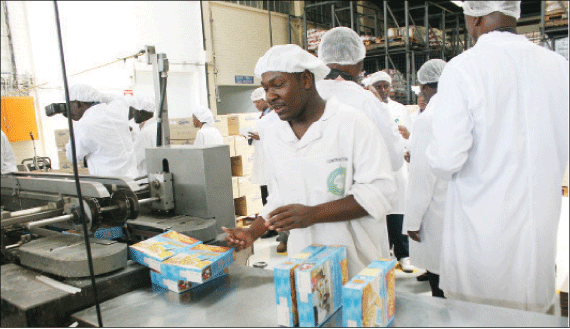
GIANT food processing Nestlé Zimbabwe has invested $20 million in plant and machinery over the last three years as the company seeks to grow regional exports.
BUSINESS REPORTER Speaking at the company’s open day last Friday, Nestlé Zimbabwe managing director Kumbirai Katsande said the company had plans to grow exports to Malawi and Zambia in the short to medium terms.
The development came at a time when most companies in the manufacturing sector, mainly with local shareholding, have been struggling to remain afloat due to capital constraints.
“Since 2010, Nestlé Zimbabwe has invested close to $20 million in the refurbishment and upgrading of the cereals, Milo plants and equipment to increase production capacities, efficiencies and introduction of new products,” Katsande said.
“Our export market is looking good and we are seeing opportunities in Malawi.”
According to Katsande, the comapny is also importing 2 000 dairy cows for large-scale commercial farmers and 2 000 dairy cows for small-scale farmers under a $14 million dairy empowerment scheme launched in December 2011. The scheme is expected to run for the next five years.
Early this year, Nestlé announced plans to source 500 heifers in the second half of the year as part of its dairy revival scheme. Local farmers, Katsande said, earn nearly $120 million every year from the sale of milk.
Speaking at the same function, Industry and Commerce minister Mike Bimha said the plant upgrade was expected to create more jobs at a time when most companies have been downsizing due to declining output.
- Chamisa under fire over US$120K donation
- Mavhunga puts DeMbare into Chibuku quarterfinals
- Pension funds bet on Cabora Bassa oilfields
- Councils defy govt fire tender directive
Keep Reading
Capacity utilisation for the manufacturing sector this year slipped to 39% from 44% in 2012.
Experts say the country’s manufacturing sector is generally uncompetitive due to undercapitalisation and use of antiquated technology.
Nestlé’s output for the first quarter of 2013 was 10% up on the milk category and 20% for the cereals, coffee and beverage categories.










